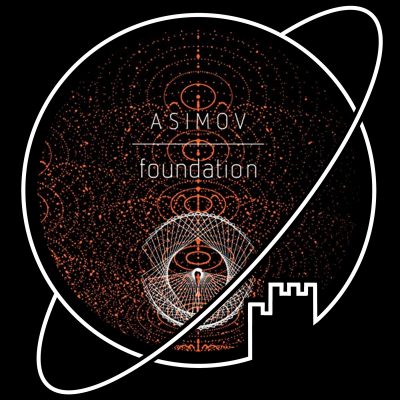- Book written by Isaac Asimov
- Published in 1951
- Part 1 of the Foundation Series
Asimov’s legendary science fiction novel describes the struggle of the scholars of the Foundation to prevent the galaxy from descending into a dark age of 30 millenia after the fall of the Galactic Empire, guided by the psychohistorical statistical predictions of the almost mythological mathematician Hari Seldon. Covering hundreds of years of political development, the reader witnesses the transformation of the Foundation from an institute for the preservation of knowledge to a geopolitical giant.


I have a bit of a difficult relationship with Asimov’s Foundation Trilogy. On the one hand, I am a fan of Asimov and his Robot-cycle, and I love the concepts that underpin the story. On the other hand, I feel that the nature of the book as a collection of short stories hurts it in its current format, and more importantly, doesn’t fit the style of fiction of the 2020s.
Let’s start with the positive: Foundation is a story based on the fascinating premise that (inexpertly put) if a group of anything is large enough, like anything in nature, its movement becomes statistically predictable. Asimov posits that the same goes for humanity, and introduces an enormous human Galactic Empire. At the start of the first book, the psychohistorian Hari Seldon predicts its collapse and an ensuing 30.000 year dark age. The only way to prevent this, is to gather and safeguard all human knowledge. Seldon predicts that if his instructions are followed, the dark age can be shortened to a mere millenium. And so the story launches into a description of the preparation and execution of Hari Seldon’s plan, via the creation of a Foundation and that Foundation’s political and geopolitical exploits.
Because the stories originally appeared separately as short stories in separate issues of 1940s science fiction pulp magazines, the successive phases of the Seldon plan each feature separate arcs and a new cast of characters, the characters of the previous story having been relegated to history or myth. On the one hand, this allows for the long-term development of political situations and for psycho-history to work on the large scale it is intended for. On the other hand, this means that the book remains very distant from both the action and its characters. The plot might be interesting, but it is presented rather matter-of-factly, in a style that I don’t think would make the cut today. The story could have been written with more of a personal touch, which we know because the later installments in the same series have more elements of character in them. The fact that Asimov hadn’t developed to that point yet shows in Foundation, and makes it far less accessible than it could have been.
So the question is, is Foundation still worth reading? It would say that it depends. It remains a legendary piece of fiction, and I would recommend it both to the genre nerds that want to have read the classics, and to people who are interested in the type of science fiction that focuses on concepts over people. But I think that most people with modern tastes would find it a bit too dry. If they want to get into Asimov specifically, I would recommend the great I, Robot or The Caves of Steel instead.





